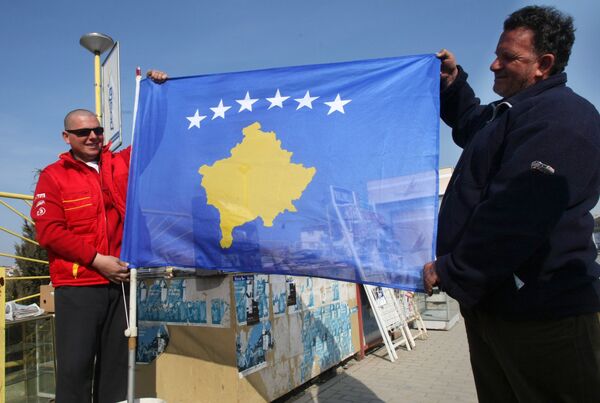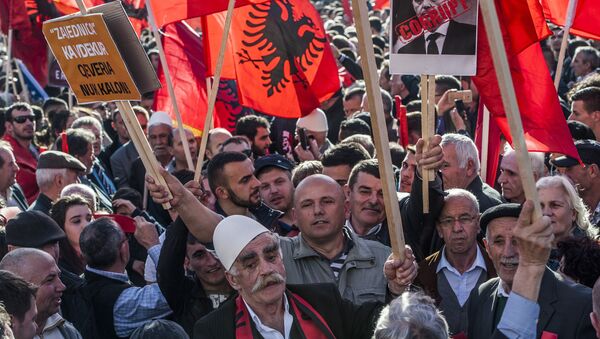Protesters filled the streets of Kosovo's capital of Pristina on Wednesday, joining opposition parties to call for Prime Minister Isa Mustafa to resign before February 27, or face a wave of "unstoppable" protests.
"The number of citizens at today's protest is a clear referendum against this government which should leave as soon as possible to open the way for democracy and justice in Kosovo," Visar Ymeri, chairman of the Vetevendosje [Self-Determination] opposition party told BIRN.
The demonstration comes on the back of a number of high-profile protests against the government, with the country's three main opposition parties organizing a series of rallies aiming at bringing down the government.
Live from the #Kosovo national library. #Kosovo8Years pic.twitter.com/QMn1WE3fkU
— Prishtina Insight (@PrishtInsight) February 17, 2016
The protests, which at times have descended into violence, have been coupled with other disruptions, with opposition MPs setting off tear gas in parliament on numerous occasions throughout 2015 to protest against controversial measures.
Opposition gathers thousands in #Pristina for anti-government rally on #Kosovo Independence Day pic.twitter.com/SQAJOzz9KL
— Sara de Melo Rocha (@SaradeMeloRocha) February 17, 2016
Border and Autonomy Deals at the Heart of Protests
The protests relate to two different deals between Kosovo and the governments of Montenegro and Serbia.
In August 2015, the government agreed on a border demarcation deal with Montenegro, however opposition groups said the agreement was unfair and would rob Kosovo of territory.

While opposition remains to the border arrangement, far greater protests have been held against plans to create an association of Serb-majority municipalities in Kosovo, which has a majority ethnic Albanian population.
The agreement, which is based on United Nations Special Envoy Marti Ahtisaari's Comprehensive Proposal for the Kosovo Status Settlement from 2007, suggests the creation of 10 Serb municipalities, which would be given greater autonomy from Pristina.
Under the agreement, the Serb municipalities would receive tax concessions and be granted the ability to introduce other reforms independently of the Kosovan government, such as the creation of its own education system and appoint its own police chief.
Opposition groups have slammed the proposals, arguing that the agreement is unconstitutional and would result in the de-facto breaking up of Kosovo.
The pressure on the government increased in December, when Kosovo's Constitutional court ruled that parts of the agreement violated the constitution.
Relations between Kosovo and Serbia are highly strained after the former Serbian province declared independence from Belgrade in 2008, following a NATO-backed insurgency campaign.
As such, Serbia doesn't recognize Kosovo as an independent state.



